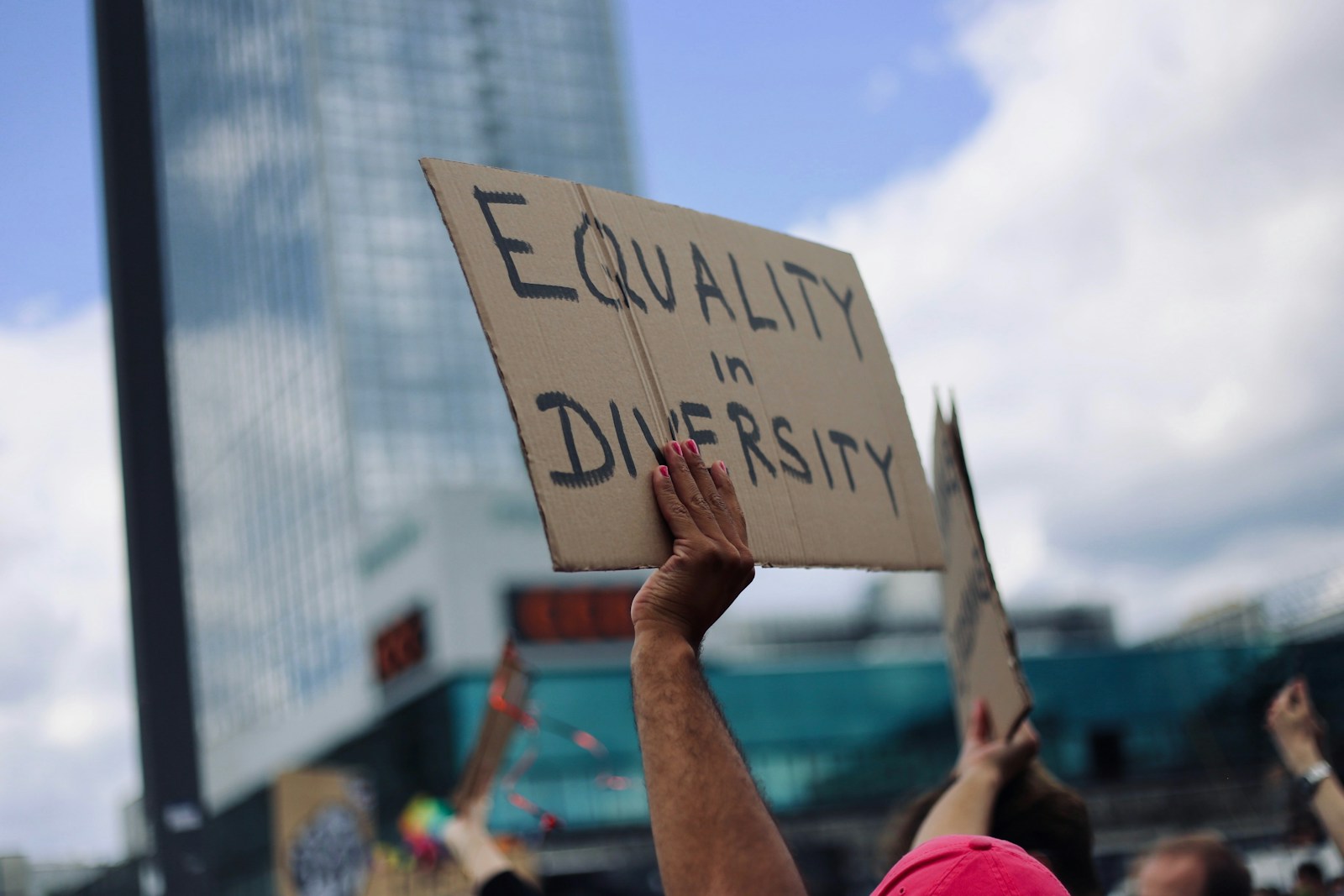
It’s all over the place. The buzz word of the week is DEI, especially now since Trump seems to have declared war on diversity. It’s everywhere on my social media feeds and has even spilled into coffee break chats with coworkers.
I can’t tell you how many times I’ve heard the complaint that “companies are just hiring brown people to meet their quotas.” It’s usually said with anger, frustration and borderline exasperation, as if hiring diverse people automatically means they’re not hiring the best person for the job. There’s this underlying assumption that if an organization is making an effort to be more inclusive, it must mean they’re lowering the bar or that merit has somehow been replaced by skin color. No one wants to be the “diversity hire.” They just want a fair shot. And if we’re being honest, that’s all DEI is really about.
What DEI Actually Is
DEI isn’t making things unfair. It’s making them actually fair. If you’ve ever had to work twice as hard just to get the same recognition as someone else, you understand why DEI matters. Perhaps it’s difficult for you to fully understand the perspective of someone like me, a middle-aged woman and editor of a Newsmagazine. And that’s okay. What I ask is simply that you make an effort to empathize with people and experiences that are different from your own. Trying to see the world through someone else’s eyes, even if just for a moment, can open the door to greater understanding and connection. Trust me, discrimination is alive and well. As a woman in media, I witness it every day.
Diversity isn’t about picking someone based on their race or gender just to fill a quota. Diversity is about representation. It acknowledges that many industries, in the past, have been dominated by certain groups—read white men—and it works to correct that imbalance. It’s about making sure that the hiring process isn’t biased, consciously or unconsciously, against people who have traditionally been excluded. Because whether you’ll admit it or not, historically disadvantaged groups, even today, still get passed over when a white man with equal or even lesser qualifications applies for the same job. That’s just a sad fact.
Equity is about fairness. It means recognizing that not everyone starts from the same place and that some people face systemic barriers that others don’t. Kids who grow up in a poorer family didn’t have the same opportunities that Elon Musk had growing up.
Inclusion is about creating an environment where different people, regardless of background, feel welcome, valued, and heard.
DEI doesn’t mean someone who isn’t qualified gets the job. It means making sure that truly qualified candidates aren’t overlooked just because they don’t look like the “traditional” hire.
What DEI Isn’t
It’s not about hiring the “less qualified” person. The idea that companies are just plucking unqualified people off the street to tick off a diversity box is ridiculous. More often than not, DEI helps employers realize that the most qualified candidate might not be the one who fits their unconscious biases.
It’s not discrimination in reverse. Giving opportunities to historically excluded groups doesn’t mean taking them away from others. Again, it means fixing a system that has long favored certain people while ignoring others.
It’s not a political stunt. Some act like DEI is just another culture war battleground, but the reality is that diverse teams perform better. Study after study shows that organizations with diverse leadership make smarter decisions and are more successful overall.
It’s not just about race. DEI includes people with disabilities, different economic backgrounds, different life experiences. It makes sure opportunities aren’t limited to a select few.
Why The Pushback?
I get it. When someone sees a workplace shifting in a way that doesn’t benefit them directly, it can feel unfair. For example, if a white candidate loses out on a job to a brown candidate, it’s easy to assume that the decision was based solely on race rather than qualifications, especially with high emotions are involved. But this assumption overlooks the systemic advantages that have favored certain groups over others decade after decade.
This sentiment ties into broader societal issues, like the rise in hate crimes and racial tensions in places like Cornwall, where minority groups are often viewed with suspicion or resentment. When people feel threatened by change, they may lash out or cling to the status quo, even if that status quo is inherently unfair. DEI initiatives aim to address these imbalances, but they can only succeed if we confront the underlying biases and fears that fuel resistance.
If you’re interested in exploring how systemic biases and resistance to change manifest in other contexts, check out our series of articles, Hate in Cornwall, which address the rise of hate crimes in Cornwall. It delves into how fear of the “other” can lead to division and violence, and how initiatives like DEI can help bridge these gaps by fostering understanding and inclusion.













This is great, Julia!
It’s incredible the disinformation the far right is spreading about this practice when all it means is using a different lens to approach team building and hiring. Stepping outside your comfort zone and using empathy to understand different perspectives is super vital and profitable for companies!
DEI often prioritizes group identity over individual merit, clashing with Martin Luther King Jr.’s vision in his 1963 “I Have a Dream” speech: “I have a dream that my four little children will one day live in a nation where they will not be judged by the color of their skin but by the content of their character.” This call for character-based judgment starkly contrasts with DEI’s focus on racial and identity categories, which risks reviving the very color-consciousness MLK sought to transcend. DEI’s roots tie to Marxism via critical theory, recasting economic class warfare into cultural and racial struggles between oppressors and oppressed. This collectivist lens pushes equity—equal outcomes—over equal opportunity, sidelining individual agency and competence for engineered balance, much like Marxism’s rejection of personal merit for redistributed parity. Critics say this fuels resentment and inefficiency, as positions are awarded to meet demographic quotas rather than ability, echoing Marxist central planning’s pitfalls. Harvard’s Roland Fryer has shown race-based policies can entrench stereotypes, not erase them. By fixating on identity rather than fostering a meritocracy, DEI betrays MLK’s dream and natural differences in talent or effort, favoring ideological purity over practical fairness.
This argument twists both DEI and MLK’s message. MLK wasn’t calling for a “colorblind” society—he knew racial disparities needed to be actively addressed. DEI isn’t about ignoring merit; it’s about making sure talent isn’t overlooked because of systemic bias.
And no, DEI isn’t Marxism. It’s not about forced equality but about removing barriers so everyone has a fair shot. A true meritocracy only works if everyone actually has the same opportunities, which hasn’t been the case. Ignoring bias doesn’t make it go away—DEI helps level the playing field so MLK’s dream can actually be realized.
–Julia